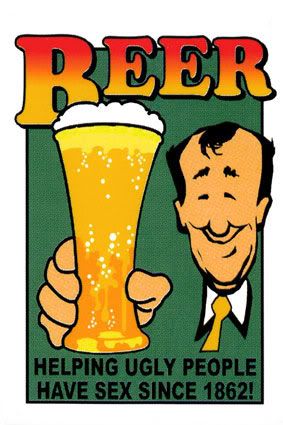Should You Trust the Government?
"The principal characteristic...is the ability of individuals in high-trust cultures to form, freely and easily, associations and enterprises among individuals not connected by close kinship ties...High-trust cultures are able to support rich civil societies—ones in which individuals spontaneously associate in all manners of organizations, from for-profit corporations to nonprofit community, civic, and religious organizations, in order to carry out the functions of society.
...Low-trust cultures are ones in which the state becomes, by default, the principal organizing force for all civic and economic functions and the primary means by which individuals mediate all transactions beyond the family level."
-- James Bennett, The Anglosphere Challenge, p. 114
I recently attended a planning/rehearsal session to help the Foundation for Research in Economics and the Environment (FREE) put together Environmental Stewardship: A Conference Series for Religious Leaders. I gave a talk on the advantages of decentralized trial-and-error, the importance of knowledge in economic growth, and the role of ethics in prosperous societies.
Because part of my talk focused on the importance of ethics that promote trust, I was asked a question concerning trust in government. Is trust in government necessarily part of "high-trust culture"? Is it harmful to a high-trust society to discourage trust in government?
Similarly, is trust in scientific expertise necessarily part of a high-trust culture? Is it harmful to a high-trust society to encourage people to question scientific consensus--in particular, the consensus on global warming?
Defining Trust
The word "trust" is one of the most positive words in the English language. Often our most emotionally powerful words are vague and imprecise when it comes to definition.
For me, trust operates in two contexts that are similar but distinct. To trust information means that I use it in a positive way to guide my thinking on an issue. To trust a transaction means that I expect to receive appropriate benefits from that transaction.
For example, I trust John Baden, the organizer of the seminar for FREE. His commitment to principle is strong. At a dinner during our session, I sat next to Edgar Capen, who got to know Baden when they both were in Texas. Baden owed his position at the time to funding from the oil companies, who had found his free-market advocacy congenial. However, when oil prices fell in the 1980's, the industry developed a craving for subsidies. When Baden stuck to his free market economics, he was fired.
Many economists would have found a way to rationalize adopting a new viewpoint more congenial to their sponsors. I trust Baden when he provides information, because he chose to compromise his short-term financial interests rather than his economic principles.
I also trust Baden in a transaction that forces me to give up a lot of travel time. His conferences are salons of accomplished, intelligent people with diverse viewpoints. At this session, I picked up a number of tips that will help me communicate better with students. I also got to know people who are connected with organizations that might some day be helpful to me.
The Scope of Trust
A high-trust society is one where trust extends beyond one's clan or village. Trust within families is something that can be taken for granted, even in a low-trust society. A high-trust society is one that has found a way for trust to extend to strangers.
Sometimes, trust is based on experience that leads one to believe that someone else is virtuous. My trust of John Baden is an example of that.
However, the highest form of trust is trust in the processes followed by other parties, including the incentives governing those processes. Information that is developed using scientific methods, with careful consideration of alternative hypotheses and limitations of the data, comes from a reliable process. Transactions are most trustworthy when they take place in a context where similar transactions have proven trustworthy and cheating is easily detected and punished.
For example, purchases from firms that need good reputations in order to attract repeat business and word-of-mouth sales are more reliable than purchases from firms that can survive on one-off, isolated individual purchases. That is because when reputation matters, the incentives serve to protect the purchaser.
Science and Politics
For information, it is easiest to trust scientific research when the methods seem capable of producing reliable results and the conclusions have little political significance. Many people distrust politically loaded scientific research because they do not like the conclusions, regardless of the quality of that research. That common form of bias makes it difficult even for reliable knowledge to influence people's opinions. Because economics often has political implications, it is common to distrust economic analysis, even when its conclusions are arrived at by careful reasoning and empirical study.
When the conclusions are politically loaded, it makes sense to check the methodology carefully, regardless of whether or not they support your personal views. Careful research deserves consideration, but unreliable research should be given less weight.
Of course, most people lack the background to evaluate scientific research methods. To me, this suggests that scientists ought to try their best to explain their reasoning to an intelligent lay audience. This means explaining which experiments or observations convince a scientist of the validity of a theory, and why this evidence is compelling. It also suggests that it is important that for high school and college students to learn statistics and research methods.
I have difficulty trusting climate models. If a scientist wants me to believe that a particular climate model is reliable, then I would like to read an essay written for an intelligent layman explaining the tests that the model was able to pass, and how these tests serve to rule out alternative hypotheses about the phenomena explained.
I understand that a model will have some uncertainty surrounding its predictions and properties. In fact, I would expect considerable uncertainty. I would be more comfortable if scientists spelled out the uncertainties than if they glossed over them.
My impression is that no single climate model enjoys the confidence of a large number of scientists. Instead, many climate scientists are willing to endorse a "consensus" that takes a range of estimates from some models. I would like to read an essay written for an intelligent layman that explains why this is a persuasive approach. What is the rationale for including some models while excluding others? Do predictions based on the "average" or "consensus" model out-perform the predictions of any individual model, as in a "wisdom of crowds" phenomenon? Or is the purpose of a "consensus" is to strengthen a political coalition, rather than to improve accuracy?
Trust in Government: Processes, not People
In the case of government, there is good trust and there is bad trust. Good trust is trust in processes that promote public service. Bad trust is trust in the virtue of leaders or the wisdom of voters.
If you can trust the processes of government, then that is a good thing. Good trust in government is based on processes that provide for accountability, checks and balances, equal protection, and punishment of official corruption.
Trusting the virtues of government leaders is a bad thing. It leads one to cede rights and powers to government that are easily abused. The more that our ideology demands virtue from leaders, the more likely it is that our leaders will prove to be evil. Authoritarian Communism illustrates Lord Acton's maxim that "power tends to corrupt; absolute power corrupts absolutely."
Trusting the "will of the people" is also a bad thing. Democratic majorities can support inferior policies, infringement on people's rights, and even genocide. Popular voting is useful as a check on elites, but not as a tool for over-riding the principle of individual liberty.
My idea of a high-trust society differs from that of many elites. Elitist journalists think that a high-trust society is one where we trust the mainstream media. Elitist politicians and activists think that a high-trust society is one where we trust legislators, regulators, and experts to exercise broad authority. In contrast, I believe that a high-trust society is one in which processes ensure that elites are subject to checks and accountability. It is particularly important for legislators, regulators, and experts to have their authority limited and their accountability assured.
Thursday, July 5, 2007
Subscribe to:
Post Comments (Atom)















No comments:
Post a Comment